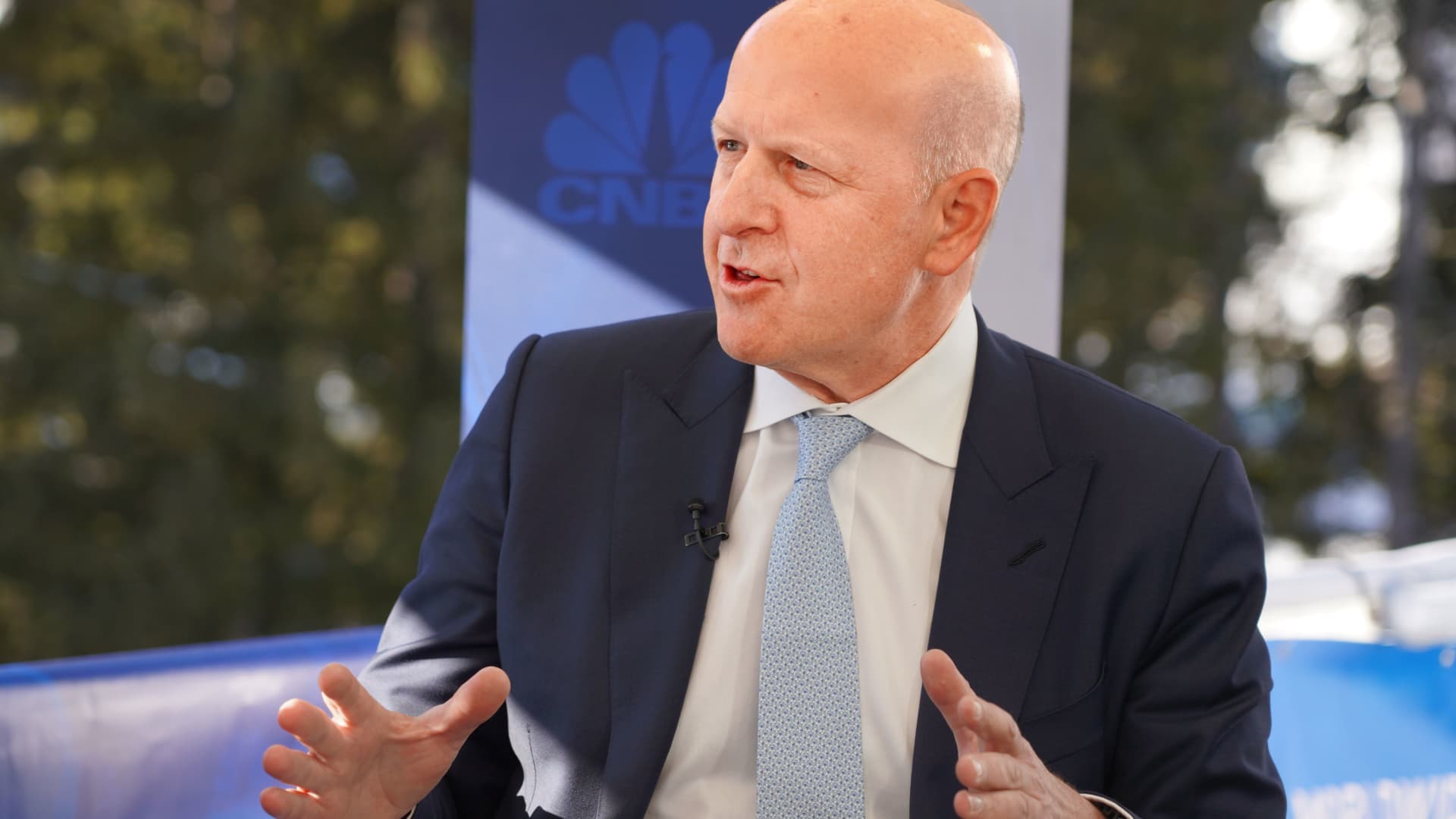Products You May Like
Goldman Sachs CEO David Solomon and JPMorgan CEO Jamie Dimon both expect a U.S. recession as a tight labor market keeps the Federal Reserve on an aggressive monetary policy tightening trajectory.
Speaking on a panel at the Future Initiative Investment conference in Riyadh, Saudi Arabia on Tuesday, Solomon said he expects economic conditions to “tighten meaningfully from here,” and predicted that the Fed would continue raising interest rates until they reached 4.5%-4.75% before pausing.
“But if they don’t see real changes — labor is still very, very tight, they are obviously just playing with the demand side by tightening — but if they don’t see real changes in behavior, my guess is they will go further,” he said.
“And I think generally when you find yourself in an economic scenario like this where inflation is embedded, it is very hard to get out of it without a real economic slowdown.”
The Fed funds rate is currently targeted between 3%-3.25%, but Federal Open Market Committee policymakers have signaled that further hikes will be needed, with U.S. inflation still running at an annual 8.2% in September.
Philadelphia Fed President Patrick Harker said last week that the central bank’s policy tightening to date had resulted in a “frankly disappointing lack of progress on curtailing inflation,” projecting that rates would need to rise “well above 4%” by the end of the year.
Meanwhile, the U.S. Department of Labor reported 10.1 million job openings in August, signaling that employers’ demand for workers, though falling sharply, remains historically high.
Central bank policymakers hope that a cooling labor market will translate to lower wage growth, which has been running at its highest rate in decades and signals that inflation has become embedded in the economy.
“So I too am in the camp that we likely have a recession in the U.S. … I think most likely we might be in a recession in Europe, and so until you get to that point where you see a change — whether it’s in labor, the demand side — you are going to see central banks continue to move on that trajectory,” Solomon added.
U.S. GDP contracted by 0.9% in the second quarter of 2022, its second consecutive quarterly decline and a strong signal that the economy is in recession.
Fellow Wall Street titan Dimon agreed that the Fed would likely continue hiking rates aggressively before pausing to allow the data to begin reflecting its efforts to rein in inflation, but struck a similarly pessimistic tone on the outlook for economic growth.
“But American consumers, eventually the excess money they have is running out. That will probably happen sometime mid-year next year, and then we will know more about what is going on with oil and gas prices and that kind of thing, so we will find out,” Dimon said.
